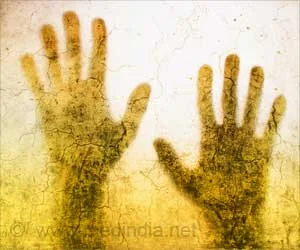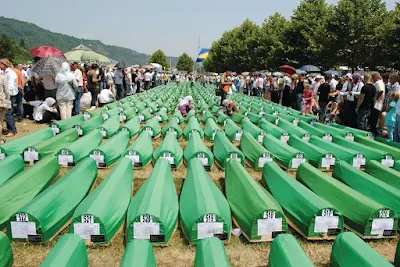Robert Tressell's real name was Robert Noonan, a Dubliner, who was working as a housepainter in Hastings in the early 20th century.He was also a working class militant and a member of the Social Democratic Federation.To avoid the bosses’ blacklist he took the pseudonym Tressell, from the portable table used in the trade.
His own experience of working class life and early socialist politics are brilliantly recreated in his book, in what is regarded as one of the most gripping socialist novels of the last century. It only appeared first in abridged form on April 23 1914, three years after his premature death from tuberculosis in a workhouse aged 40 in Liverpool 1911, and not in its full intended version until 1955, a book that continues to sell well, with over a million copies being sold in more than one hundred printings and at least six languages and still sells around 5,000 a year, second-hand copies are scarce because so few people want to part with the book.
The Ragged Trousered Philanthropists remains ever resonant today in it's accurate historical account of the lives of working people, and in its condemnation of the horrors of capitalism, poverty and the struggle of working class people, with a comprehensive explanation of how the system works, and the need for a socialist alternative.
In it Robert Tressell tells the story of a group of working men who are joined one day by Frank Owen, a journeyman-prophet with a vision of a just society. Owen's spirited attacks on the greed and dishonesty of the capitalist system rouse his fellow men from their political quietism. Owen, a building worker, describes incidents and characters that any worker could relate to today. The "Philanthropists" are the workers willing to work for the "good cause" of giving their unpaid labour to the "masters" ,the bosses’ profits.Casualisation, bullying bosses, low pay, poor housing, debt, unemployment, and the regular humiliations endured by working people throughout their lives, are all graphically depicted by Robert. The overwhelming impression is of a book written by, not just a well-placed observer, but as Noonan puts it "the story of twelve months in Hell told by one of the damned".
The voice of Frank Owen the main character still comes across with such contemporary power to speak to those who have not yet realised that pessimism and despair make us collaborators in our own fate. His critique of the system still hits home and will continue to be relevant as long as the system remains in place, that sees our leaders mock us while making us poorer.
The main theme of the book is how the poor give so much to the rich (hence the title).
Owen believes that the capitalist system is the real source of the poverty he sees all around him, and he rejects reformism as the answer saying, “It's no good tinkering at it. Everything about it is wrong and there's nothing about it that's right. There's only one thing to be done with it and that is to smash it up and have a different system altogether.” In vain he tries to convince his fellow workers of the correctness of his views, and much of the book consists of conversations between Owen and other workers, which frequently lead to Owen being jeered and mocked.
An argument flares up about poverty what causes it? One man blames drink,another ‘overpopulation’ (even in those days). Another thinks education because, it puts foolish ideas in people’s heads and encourages laziness. An older man says that there’s always been rich and poor in the world, and always will be. One, a ‘chapel man’, blames original sin: ‘When it comes to poverty, what a grown man must do is conquer himself ’. Eventually, Frank Owen, can stand it no longer. "Overpopulation, drink, laziness, sin have nothing to do with it. The real cause of poverty," says Owen, is money! Of course, he is immediately challenged to prove it, and does so by means of what Tressell calls ‘the Great Money Trick’ in which he explains the basics of capitalist economics to his fellow workers. Using pieces of left-over bread, Owen demonstrates to three of his colleagues how the wage system not only fails to pay them the full value of their labour, but also charges them for the necessities of life they have already produced, so that they end up with nothing. His message is a simple one: unemployment, low wages and poverty are not the unfortunate by-products of a system based on economic competition; they are a fundamental part of it, the means through which the ruling class of landlords and monopoly capitalists disciplines the working class, without which wealth could not be created. Far from being the solution to poverty, money is the cause of it. True wealth consists of the things workers make; but what Owen calls the ‘Money System’ ensures that most of the things they make end up in the hands of those who don’t make them. Challenging his workmates’ rusted-on assumptions that the cause of poverty is foreign workers or drink or indolence or machinery or over-population, he strips back the system to its key working parts in an attempt to lay bare its underlying weirdness.
The media still tends to warn us not to get carried away by those who campaign for fairness and justice, those like Jeremy Corbyn and they try to spread the idea that such changes proposed cannot be achieved because we should distrust all those who advocate them. Like in the book there are people who still refuse to believe that changing the system would benefit us, believing that the rich and powerful still have a divine right to run the country.
Robert Tressell's book continues to be a source of inspiration for those fighting against capitalism, poverty and injustice with its continuing relevance for today, since we atill live in the same capitalist world, with hardships faced by people on low pay, bullying bosses, insecure work and zero hours contracts. Do we give in to despair, or do we carry on patiently explaining how the Great Money Trick works, and send some real socialists to represent us in parliament to make a difference for a change.Within its pages this book still carries a powerful message that commands attention .I would urge anybody who has not read it yet, to give it a go. It will restore some idealism and hopefully make you want to reach out for more of that light. Ideas that remain relevant to those prepared to put them into practice. As I've re-read it now when I am much older, I realise there is still so much worth fighting for. Nevertheless thank you Robert Tressell from the bottom of my heart.
Writing on the centenary of Tressell's death, the late Tony Benn said :-
" Robert Tressell, through the voice of Frank Owen, is addressing us with arguments that are just as relevant now as they were when he first used them a century ago. If we want to make progress we have to do it ourselves and believe it can be done. That is why this book should be studied by this generation if we are to make progress, for there is no other way. We do it ourselves or it will never be done."
Here is an extract. May his words continue to echoe on down through the years. If you haven't read it I strongly recommend that you do. It truly is still essential reading for our times.
"Poverty is not caused by men and women getting married; it's not caused by machinery; it's not caused by 'over-production'; it is not caused by drink or laziness; and it is not caused by 'over population'. It is caused by Private Monopoly. That is the present system. They have monopolised everything that it is possible to monopolize; they have got the whole earth, the minerals in the earth and the streams that water the earth. The only reason they have not monopolised the daylight and the air is that it it is not possible to do it. If it were possible to construct huge gasometers and to draw together and compress within them the whole atmosphere, it would have been done long ago, and we should have been compelled to work for them in order to get money to buy air to breathe. And if that seemingly impossible thing were accomplished tomorrow, you would see thousands of people dying for want of air - or of the money to buy it - even as now thousands are dying for want of the other necessities of life. You would see people going about gasping for breath, and telling each other that the likes of them could not expect to have air to breathe unless they had the money to pay for it. Most of you here, for instance, would think and say so. Even as you think at present that it is right for so few people to own the Earth, the Minerals and the Water, which are all just as necessary as is the air. In exactly the same spirit as you now say: "It's their Land," "It's their Water," " It's their Coal,"
"It's Their Iron," so you would say "It's Their Air," "These are their gasometers, and what right have the likes of us to expect them to allow us to breathe for nothing? And even while he is doing that the air monopolist will be preaching sermons on the Brotherhood of Man; he will be dispensing advice on "Christian Duty" in the Sunday magazines; he will give utterance to numerous more or less moral maxims for the guidance of the young. And meantime, all around, people will be dying for want of some of the air that he will have bottled up in his gasometers. And when you are all dragging out a miserable existence, gasping for breath or dying for want of air, if one of your number suggests smashing a hole in the side of the gasometers, you will all fall upon him in the name of law and order, and after doing your best to tear him limb from limb, you will drag him, covered with blood, in triumph to the nearest Police Station and deliver him up to "justice," in the hope of being given a few half-pounds of air for your trouble."
Oh and this
“Every man who is not helping to bring about a better state of affairs for the future is helping to perpetuate the present misery, and is therefore the enemy of his own children. There is no such thing as being neutral: we must either help or hinder.” -Robert Tressell
Further Reading :-
One of the Damned: The life and times of Robert Tressell - F.C. Ball
Lawrence & Wishart, 1973






















